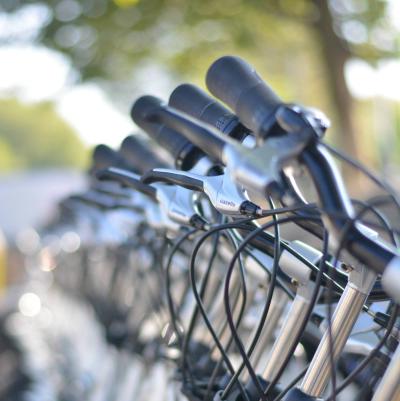
Home batteries, legal obligations and a bright future
If you already have a specific question for our battery experts, put it to them right here!
Solar energy is here to stay. And the prospects for its further growth are impressive – with or without the support of government measures, tax incentives and so on.
At the same time, the need for energy storage advances apace, in both the business and the private sectors, the reason being that it’s impossible to consume all at once the solar energy you are able to generate. So storing it for later use opens up a world of possibilities.

Home battery: advantages
With a stationary battery or home battery, consumers can use more of their self-produced energy. According to calculations: 50 to 80% instead of 30%.
What can this extra energy be used for? For all known applications, as well as for new ones, such as driving electrically using homemade green energy. The idea is attractive and, with a home battery, also feasible. In general, the battery makes the consumer less dependent on the grid, providing him with a safety net against power cuts and savings on his energy costs. As a result, the home battery is an investment that in part pays for itself (in the long run it may even become profitable).
The home battery becomes the local battery
Battery technology – usually lead or lithium-ion batteries – keeps evolving. Experiments are already underway with mobile and modular batteries for storing energy. Used electric vehicle batteries can also take on a second life for that purpose.
Not only the home battery, but also the local battery is on the rise.
The first grid-connected local battery in Flanders was installed in Oud-Heverlee in mid-2020. This will enable 9 households to 'peak shave’. Peak shaving involves storing surpluses of solar energy (produced from the solar panels of these households and up to 90 kilowatt hours) in the battery for use during peak hours. This is necessary because, thanks to the increasing level of electrification (by heat pumps, solar panels, charging stations for electric cars, ...), the grid is sometimes unable to cope with the demand. The battery is therefore also a solution to the escalating load on the grid.

Moreover, with the advent of smart meters in Belgium, the demand for home batteries and other energy storage solutions is set to increase considerably.
Encouraging prospects for you as a manufacturer, importer and/or distributor ... and a bright future, as they say.
Home batteries: take-back obligation
If you bring your home batteries to the Belgian market, then a bright future may await you.
But also quite a responsibility. The take-back obligation – or extended manufacturer's liability – means:
- that you are also responsible for collecting and recycling the batteries when they reach the end of their life.
- that you report on this to the authorities (regions);
- that you comply with all the administrative obligations surrounding them and
- that you actively participate in awareness raising and prevention.
The fact is that batteries should not just end up in the environment. They must be repaired or recycled wherever and whenever possible.
Read more about the legal take-back obligation here.
Here you will find a clear overview of all the relevant legislation.
How Bebat helps you forward
There are a lot of opportunities on the way. But with them come a whole lot of obligations.
Do you want to focus on the growth of your business? If so, involve Bebat in the tasks relating to the take-back obligation regarding waste batteries. Join as a participant and a host of worries will be lifted from your shoulders.
You can become a Bebat participant via this link.
Of course, there will also be times when you find yourself having to deal with defective or damaged Li-ion batteries > 20 kg. Always unplanned. Safety First is then the motto.
Bebat has the necessary knowledge and experience to keep Li-ion batteries > 20 kg safe:
- to collect and transport them;
- to store them;
- to diagnose them;
- to dismantle and further prepare them;
- for repair, for second-life applications or
- for recycling.
This also includes the necessary administrative formalities and reporting to the governments.
Individual agreement
Bebat can assist you from a to z in all aftercare processes for Li-ion batteries > 20 kg. Or, if you wish, only with specific tasks. It’s up to you. "Tailor-made solutions" are key here. On the basis of exactly what you need and want, a tailor-made proposal will be put to you and, if you are happy with it, can be turned into an individual agreement for the service to which Bebat commits itself.
Bebat operates throughout the whole of Belgium. But even beyond our borders, that assistance is never far away, thanks to the European network of Reneos. For this, too, you can conclude a tailor-made agreement.
How much does this service cost?
An individual agreement includes a tailor-made fee.
You don't pay it now. You pay it only when you call on Bebat's services. ‘Pay as you collect’ is the name of this system.
Why make such an agreement with Bebat now?
- by doing so, you already have the solution in place in case you are confronted with damaged or defective Li-ion batteries > 20 kg.
- you will be fully prepared for a bright future for your company!
Ready for a bright future? Contact Bebat now to discuss your situation. Free and always worth it.



